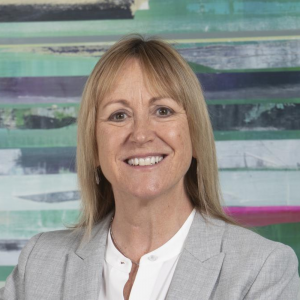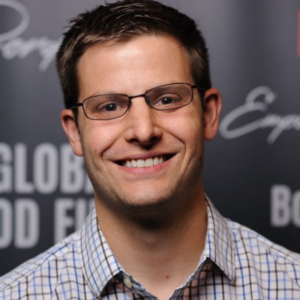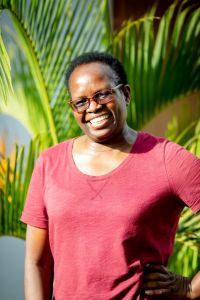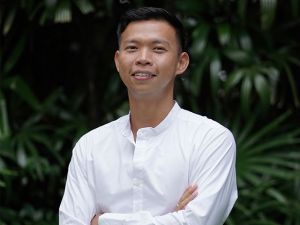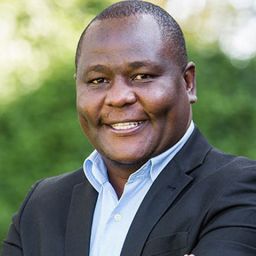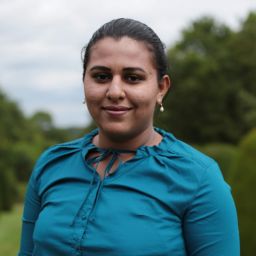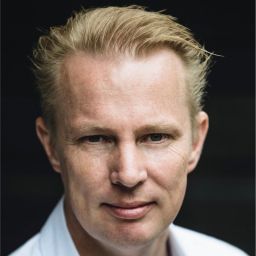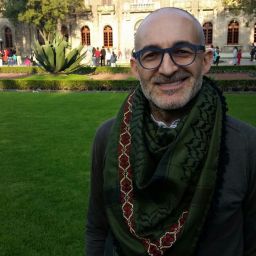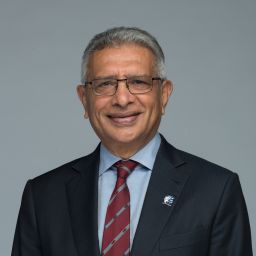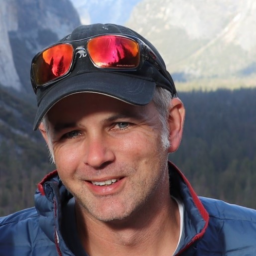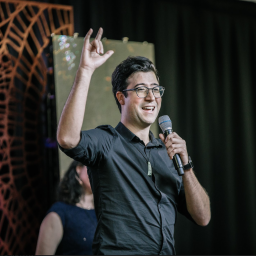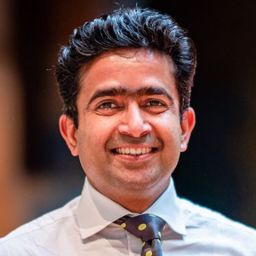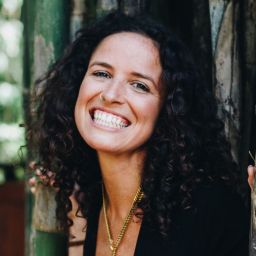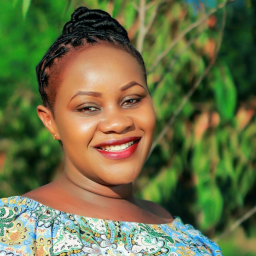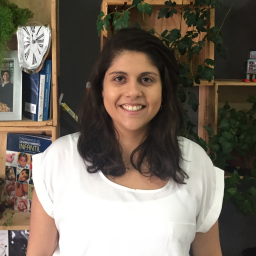Meaningful Business (MB): Can you tell us a bit about the issues you are trying to solve and why you selected them
Anian Schreiber (AS): Our attention was immediately drawn to the cocoa industry in Ghana where the majority of cocoa farmers live below the poverty line, leading to various issues such as child labour and deforestation. Ghana’s cocoa cultivation is predominantly carried out by over 800,000 small-scale farmers on remote plantations that average only two hectares in size. For centuries, the post-harvest process of cocoa fruit has remained unchanged due to a lack of infrastructure, investment and development. This limitation has meant that only a small fraction of the fruit, around 25% in our region, can be processed into beans. The other 75% of the cocoa fruit is so far discarded.
With this understanding, we recognised a significant opportunity to make a positive impact on both society and the environment while simultaneously pursuing a profitable business model. It became apparent to us that we should adhere to the triple bottom line principles of people, planet, and profit.
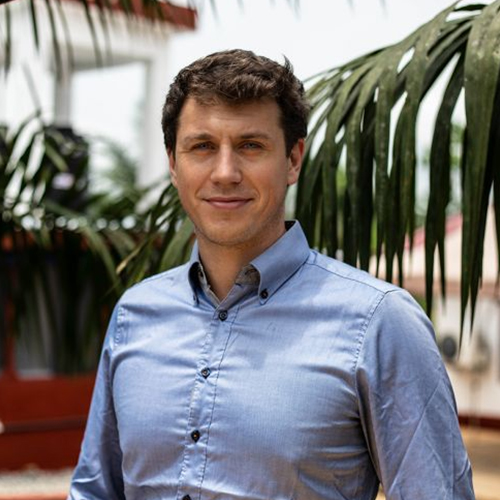
Anian Schreiber, Co-Founder & MD, Koa
MB: How is your work tackling those problems, and what impact are you having?
AS: Our approach involves working closely with the cocoa smallholders and utilising a mobile, solar-powered processing unit located adjacent to their farms to process the juice and pulp. We take great care to ensure that the pulp is gently extracted, leaving enough pulp on the beans to enable natural fermentation. Once the processing is complete, the beans are returned to their respective owners, the farmers, so they can proceed with traditional bean processing. We employ a fully digital traceability system to track the entire process, and we recently adopted a groundbreaking transparency system that employs a low-emission blockchain to verify and store all payments automatically, ensuring maximum transparency. By utilising the cocoa pulp that would otherwise go to waste, we stimulate the local economy in rural Ghana, providing additional income to cocoa farmers and creating job opportunities for young individuals in the community.
In a nutshell, our goal is to empower rural communities in West Africa to create significant added value to the global food system for unique taste experiences and positive impact.
MB: What support do you need in order to scale your business and increase your positive impact?
AS: In order to expand our business and thus increase our impact, it is crucial to raise awareness about cocoa fruit products among the general public. It should be common practice to utilise every part of a fruit and avoid wastage. Making cocoa fruit products more widely available will require significant effort in educating customers and developing products that are both appealing and desirable. This pioneering work is necessary to mainstream the use of cocoa fruit products.
The potential is enormous, especially since the range of applications is wide and extends from beverages, ice cream, and chocolate ingredients to sweeteners. We also offer the juice as a concentrate, which further expands the range of possibilities. Thanks to its versatility, we can appeal to different sectors, and cocoa fruit ingredients are currently a hot topic for restaurants, bars, bakeries, as well as the wider food and beverage industry.
It is only a matter of time before cocoa fruit juice, whether as a beverage or ingredient in a final product, becomes more mainstream. In order to increase awareness of the currently discarded parts of the cocoa fruit, we rely on cooperation with big Food & Beverage players. With chocolate manufacturer Lindt, the first step in this direction has already been taken.
MB: How do you work with partners and the wider ecosystem to achieve your mission?
AS: Cooperation is one of Koa’s four core values, besides diversity, passion and responsibility. We work with many different partners along our value chain. To mention three of them:
– The Swiss chocolate manufacturer Lindt was our first industrial customer to use our dried cocoa fruit ingredient in its chocolate. Lindt developed the innovative chocolate bar in cooperation with us and shares the positive impact with its consumers.
– Together with Swiss universities ZHAW and ETH, as well as the Ghanaian University of Cape Coast (UCC), we have developed a process that seamlessly integrates into the traditional cocoa value chain to process the cocoa fruit.
– In 2022, we partnered with the startup seedtrace to create a transparency platform that allows our customers to trace the origin of our products. We use mobile money to pay the farmers we work with and the information is stored on a low-emission blockchain. This ensures complete transparency of our sourcing process, which is particularly important in an industry like ours.
MB: What is your ambition for the future of your business?
AS: In addition to the pulp, we are researching the further, untapped potential of the cocoa fruit in order to offer a greater level of support to cocoa farmers. Our goal is to support 10% of the 800,000 cocoa farmers in Ghana through our programme within the next 10 years, providing them with additional income streams and a way out of poverty, while also offering a new outlook on rural life. To enable this we are currently building Africa’s biggest cocoa fruit factory that will help us to work with an additional 10,000 smallholders. In addition, through this new factory, we can generate around 250 new local job opportunities.
MB: How do you measure success?
AS: Koa measures success based on our triple bottom line: People, Planet and Profit. On the social side, we seek to improve the livelihoods of smallholder farmers and promote social equity by ensuring fair labour practices, investing in community development, and empowering women. To ensure environmental success we aim to reduce food waste and lower the carbon footprint of the cocoa industry, while also promoting best agricultural practices to improve the health of cocoa farms among other things. From a business point of view, we strive to build a financially sustainable business that generates a positive return for all its stakeholders while also delivering value to our customers and end consumers.
To measure success in these areas, we use a range of metrics and indicators, including environmental impact assessments, social impact assessments, financial performance metrics, and stakeholder feedback. By regularly tracking and reporting on these metrics, we can assess our progress towards achieving our mission, and make adjustments as needed to ensure we are creating positive impact and delivering value to all stakeholders.
________
Quickfire questions
MB: Tell us a mistake you’ve learned from
AS: Where shall I start 🙂 – as an entrepreneur you constantly make mistakes and learn from them. Probably the funniest mistake I ever made was forgetting to change my flip-flops for dress shoes on the way to a meeting. It was summer, the journey was 600km and I had no time left to buy shoes before meeting the CEO of a large corporate. The counterpart laughed, liked my innovative mindset, and we signed a contract soon after. What did I learn from it? Don’t take yourself too seriously and you don’t always have to be perfect.
MB: How do you spend your time away from work?
AS: I really like to be active and enjoy being in nature. My big passion is all kinds of water sports, especially sailing and kite-surfing.
MB: What’s the best piece of advice you’ve ever received?
AS: You have to accept failure as a fundamental part of learning and growth. Failure is just a sign that you’re really trying to achieve something that’s out of your comfort zone. That’s where you will find growth!
MB: What is something you wish you were better at?
AS: Being patient!
MB: What is the one book everyone should read?
AS: The Art of War by Sun Tzu
________
Discover the other leaders recognised on the 2022 MB100, for their work combining profit and purpose to help achieve the United Nations Global Goals, here.


